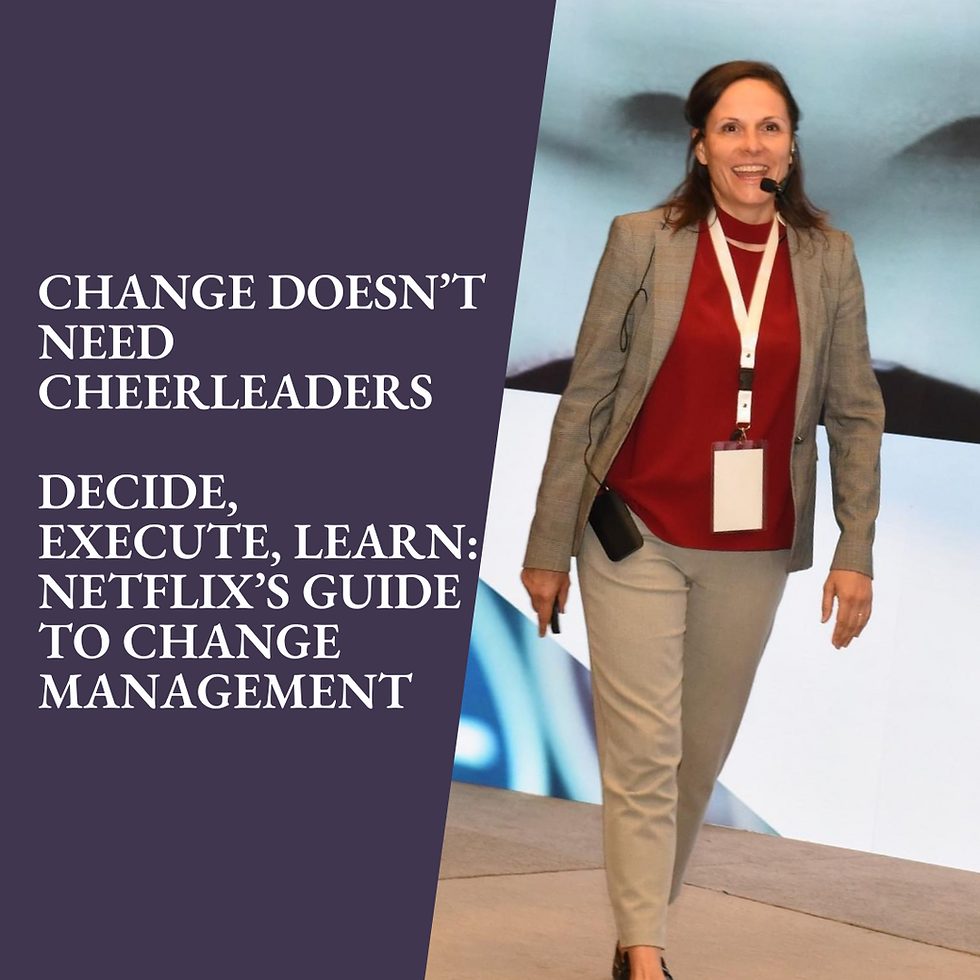Personality Traits Predict Performance
- Szilvia Olah

- Jul 17, 2022
- 3 min read
If you know what the job looks like, look for people with above-average IQ and a high level of conscientiousness. But if you don't know what the job looks like, look for people with above-average IQ and a high level of creativity (Openness).
The No1 predictor of lifetime success is IQ, followed by conscientiousness (personality trait). IQ also predicts how quickly people will learn the job (that is, with simple jobs), and IQ indicates how well the person will perform with complex jobs.
So why don't we use personality assessment during the recruitment process? Why don't we use personality assessment as a base for people and leadership development? When people understand themselves, it becomes much easier to apply the intervention that is needed for that person to become better at the role. Let's see what kind of information personality assessment can give us that can be extremely useful in development programs.
People who are high on assertiveness will take charge, influence others and get people to follow them, and keep their heads in a crisis. People with high enthusiasm quickly warm up to others, frequently express positive feelings, and are easy to get to know. A proper social butterfly. Both areas come under Extroversion, which predicts a sociable, affectionate, and fun-loving personality.
People who are high on volatility - defensive aggression - get easily irritated by anything (shouting at other drivers on the road) and change their mood frequently and easily. Can't keep their emotions under control and don't take negative feedback well. Those who are high on
withdrawal - freeze reaction - are prone to depression, anxious over small things, easily discouraged, and filled with doubts. Both areas come under Neuroticism, a trait that is related to negative emotions. In organizations, those are the ones who complain and find the negative in everything. They are insecure, worrying, and touchy. I had a colleague who was high on neuroticism, and sometimes it was very difficult working with her. She had a problem for every solution.
People who are high on compassion are interested in people more than things. This personality is a must-have for certain nursing, counselling, and social workers (even for HR). They can easily empathise and sympathise and are good at negotiating on behalf of others. Those who are high on politeness, respect authority and rules, don't seek conflict and don't come across as pushy. On the contrary, people who are low on politeness can be very blunt, disregard authority, think they are better than others, and easily insult people or pick fights. They may disregard others' or the company's interests as they are out for their own personal gain. They are not team players unless it serves them. Both come under the Agreeableness trait, which encompasses maternal care and predatory aggression.
People who are high on industriousness are described as hard workers. They don't waste time, carry out their plans, and aren't easily distracted. They find meaning in duty and make extremely good managers. Those who are high on orderliness like order, tidiness, routine, and following schedule. Both come under the Conscientiousness trait, the 2nd best predictor of life outcome. They are incredibly diligent and reliable people. They do what they promise and don't cut slack for anyone.
People who score high on intellect (not IQ) are fluent with and interested in abstract ideas. They can absorb and understand a lot of and complex information, think & learn quickly, and formulate ideas clearly. Those who score high on openness are very creative and hence don't function well in an environment that is characterised by routine and constraints like rules and policies. They need a creative outlet otherwise get demotivated and leave. That's why creative people are not found in large organizations, especially at the lower and mid part of the hierarchy. Both come under the Openness trait, and they make great artists or entrepreneurs as they function well with uncertainty and chaos.
Understanding people's personalities are vital for the development of personalized learning programs. It is easier to adjust a job to the person than the person to the job.
.png)



Comments